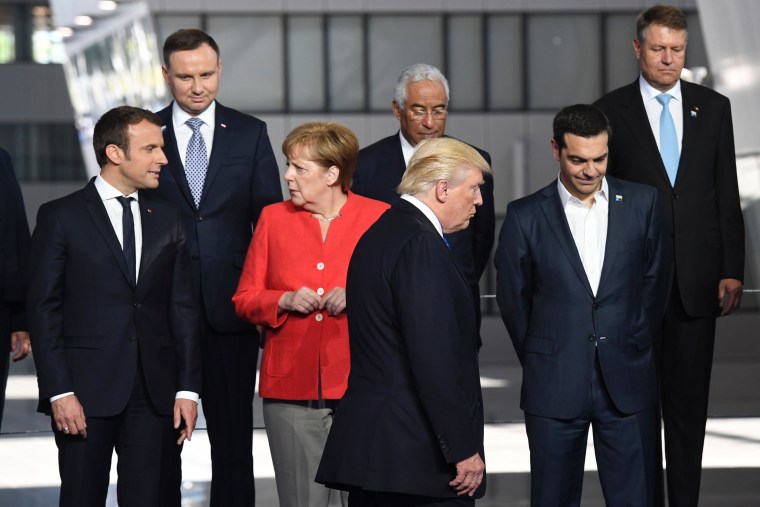Sen. Lindsey Graham (R-S.C.) acted as if he'd figured out something important: how to forge a partnership with Donald Trump. While the two Republicans clearly didn't see eye to eye during the 2016 campaign, the South Carolinian decided a charm offensive would improve his standing with the president and give him influence over Trump's direction.
As regular readers may recall, Graham attacked the press for its criticisms of Trump. Graham promoted conspiracy theories and anti-Clinton nonsense that Trump was likely to favor. Graham pressed the Justice Department to go after the author of the Trump/Russia dossier. Graham golfed with Trump and bragged about how nice Trump’s course was. Even after Graham heard Trump condemn immigrants from, in the president’s words, “shithole countries,” the GOP bit his tongue and refused to publicly acknowledge what we knew to be true.
For his trouble, Graham was rewarded with nothing. On the contrary, after carrying Trump's water for a while, the senator eventually found that water dumped on him.
This came to mind this morning reading Politico's report on incensed foreign leaders who tried cozying up to the American president, only to discover their efforts were in vain.
Foreign leaders are learning that hand-holding, golf games, military parades and other efforts to personally woo President Donald Trump do not guarantee that Trump won't burn them on key policy issues.Trump calls Japanese prime minister Shinzo Abe, who visits the White House Thursday, his "good friend." French president Emmanuel Macron is a "great friend." And Canadian Prime Minister Justin Trudeau is a "great friend, neighbor, and ally." All have sought to butter up Trump through friendly face time, recognizing that the quickest way to the president's heart is through his ego.But all, to varying degrees, are exasperated with Trump.
Indeed, when Trump's wishes diverted from their advice -- on national security, on trade, on the climate crisis, etc. -- the American president turned on the foreign leaders who'd hoped an inter-personal connection might make a difference, even at the risk of undermining their own domestic support.
Politico quoted one former White House official saying, "Trump is very selfish and I think he views flattery as a one-way street where he gets flattered and then there's no real reciprocal benefit going back the other direction. If you're a foreign leader you have to realize if you try to butter up Trump it doesn't really matter, it's a one way street."
This is consistent with everything we know about the Republican president: nearly everyone who tries to curry favor with Trump eventually comes to terms with the limits of his loyalty. As we discussed after Reince Priebus' ouster, Trump's brief political career has been marked, repeatedly, by his rejection of those who've shown him nothing but deference.
The president has made clear he sees loyalty as something he expects to receive, not bestow.
Leaders of allied nations probably thought they were slowly gaining influence and favor in the White House. Now they know better.
